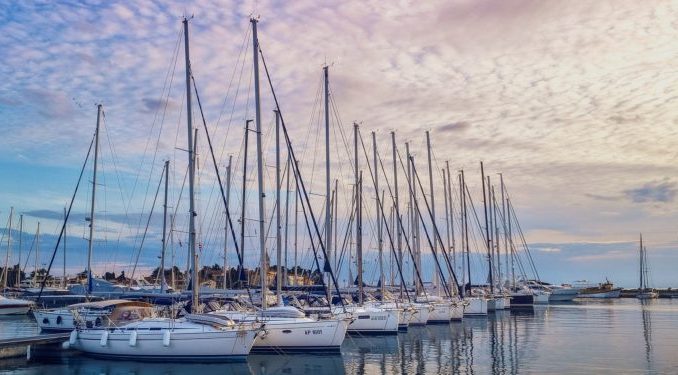

Marine insurance is an indemnity contract to assure that goods will reach their destination safely from the place of origin. This insurance covers damage or loss of goods that might happen on the ships, terminals, and other means of transport for transferring and holding the goods from the point of origin to their destination. There are various types of marine insurance as well as policies. It is very important to choose an insurance policy that matches your needs and ensures the protection of your goods.
Here is how to select the ideal marine insurance policy
Voyage policy vs. time policy
Voyage policy insurance covers a particular voyage. The insurance cover is for the protection of cargo from one specific point to another. A time policy covers cargo for a particular period. You can ensure your cargo for weeks, months, or years. However, you can as well opt for a combination of voyage and time policy. This will mean your cargo has an insurance cover from one particular location to another for a specified period.
It is highly recommended to cover your cargo for any risks before and after shipment. You have to cover your cargo from the time of leaving the storage depot at a named location before transit begins to a particular delivery location. This can be a destination port, warehouse, or storage place. In case the goods are not delivered, the insurance cover continues for about 60 days from the moment of discharging the goods from the vessel at the destination port.
Floating policy vs. open cover
When searching for a marine insurance policy, the floating policy is one with details regarding the shipment and cargo that are not disclosed at the time of taking out the policy. This usually happens when both parties agree to the delivery of the goods in various batches. And, there is no chance of knowing the name of the vessel for undertaking the shipment including the shipment date. Emphasis is mainly on the value of the goods at the time of issuing the policy.
For every delivery of a batch, the insurance company deducts the value from the total amount insured. On the flipside, amending the contract to add more cargo or raise the value of the goods, the agreed amount for the floating policy remains. To mitigate against such inconvenience, an open cover policy is a good solution. This is an arrangement with the insurer undertaking to issue marine insurance policy specifically, or floating where necessary. The policy protects your goods from getting shipped without insurance cover.
Valued policy vs. unvalued policy
Valued marine insurance covers the value of goods agreed upon by both parties. This agreed value doesn’t have to reflect the actual value of the cargo. There’s a possibility of the buyer to request for higher insured value to include expected profits from the goods. This effectively protects the buyer from loss of goods and damage in case the goods are not delivered. There is a need to communicate the value insurance policy agreed by the insured when there’s a difference in actual and agreed value.
A non-valued policy is where the value of the goods is determined according to statutory law. The Marine Insurance Act dictates the case of the English Law. This stipulates that the insured value for the goods is their commercial value including transport expenses. So, a non-valued policy won’t include the profit margin for the goods insured. This makes a valued insurance policy the best choice for international sales.
Why marine insurance is necessary
Successful business importers and exporters have to look for ways to save costs and maximize profits. So, marine insurance is very important to mitigate any risks that you can’t rule out in the industry. The insurance covers your goods against damage or loss of ships, cargo, and terminals. Without appropriate cover, you risk incurring irrecoverable losses. Having the right marine insurance policy cover and policy protects you from losses.
You have to find a professional and experienced marine insurance service provider to guide you on the most appropriate insurance cover to match your needs. Having an insurance company to hold your back will ensure appropriate coverage, great rates, and a quick turnaround. Additionally, a professional company will give you helpful and timely attention whenever you need to preempt marine liability. Regardless of the nature and size of your business, you need an insurance partner to protect you from any risks.
Wrapping up Export and import business requires moving goods across distant locations. Here, they have to go through various hands at the customs, handling, and storage facility. This comes with a risk of damage or loss. To be sure that you don’t incur losses, taking out an appropriate insurance policy to cover your cargo is a smart idea. There are various insurance policies, so, you can use our guide to select one that matches your requirements.